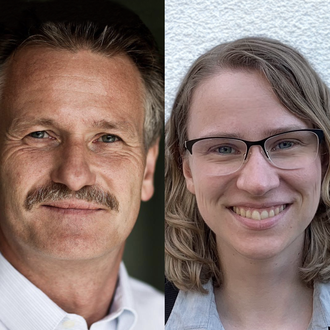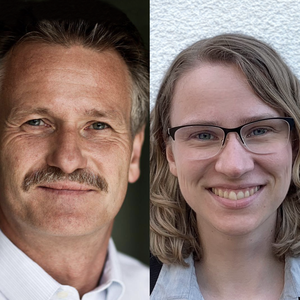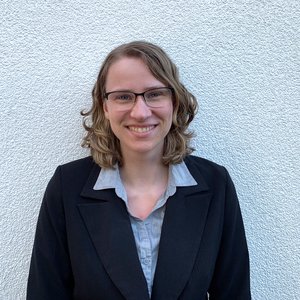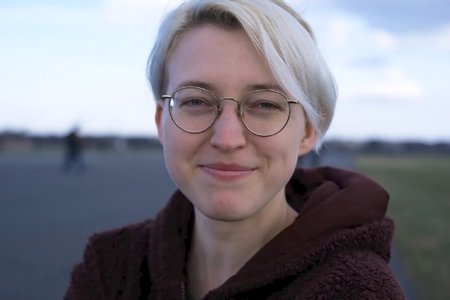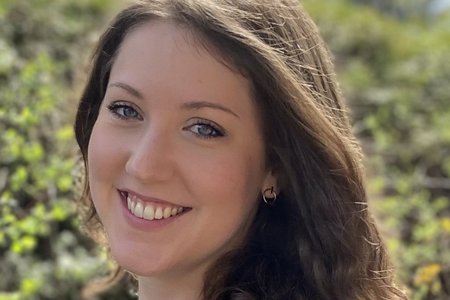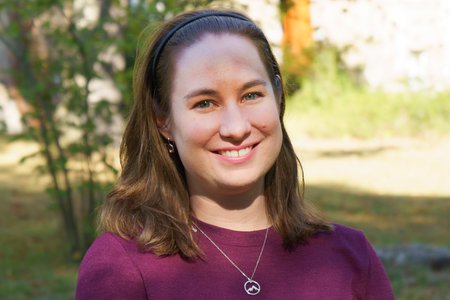AIP scientists receive two awards from the German Astronomical Society
The German Astronomical Society (AG), the professional society for astronomy and astrophysics in Germany, recognises scientific achievements at the Leibniz Institute for Astrophysics Potsdam (AIP) in this year's award ceremony: The Instrument Development Award goes to Professor Martin Roth, and Dr Anke Arentsen receives the Doctoral Thesis Award.
Professor Martin Roth from the Leibniz Institute for Astrophysics Potsdam (AIP) is being honoured with the Instrument Development Award for his significant work on the development of 3D spectroscopy, his outstanding contributions to the research and development of astrophotonics, to the teaching and training of young scientists in astronomical instrumentation, and to the resulting advances in the astrophysical study of resolved stellar populations. Under his leadership, the PMAS instrument was a breakthrough in the observational technique of integral field spectroscopy, crowned by the successes of MUSE and VIRUS, producing internationally visible science results. Specialized in optical and near-infrared instrumentation for ground-based and space observatories, he also pioneered in multi-disciplinary research, and transfer of knowledge and technology, e.g., the use of astronomical instrumentation for medicine and life science.
His achievements include the establishment of the interdisciplinary Center for Innovation Competence for Fiber Optic Spectroscopy and Sensing innoFSPEC, which is unique in Germany and dedicated among others to the development of astrophotonics technologies. Since 2011, he has been teaching as Professor of Astrophysical Instrumentation and Astrophotonics at the University of Potsdam, training junior staff in the field. After studying physics and completing his doctorate in Munich, he transferred to AIP in 1994 after positions at ESO and the University Observatory in Munich. In 2013, together with Joris Gerssen, he received a James Webb Space Telescope Significant Achievement Award for his work on NIRspec, an instrument for the James Webb Space Telescope, the successor to Hubble. He was a member of the steering committee of the MOSAIC consortium for the future Extremely Large Telescope (ELT) and is currently coordinating the German contribution to BlueMUSE.
For her spectacular results on the chemical composition and dynamics of stars in the inner regions of our Milky Way, the AG awards the Doctoral Thesis Prize to Anke Arentsen. She received her PhD from the Leibniz Institute for Astrophysics Potsdam (AIP) after her studies of Astronomy in Groningen, Netherlands, and is currently a postdoc at the astronomical observatory in Strasbourg. Her PhD thesis was dedicated to Galactic Archaeology and the oldest stars in our home galaxy. Anke Arentsen made important contribution to the understanding of the Milky Way and what it looked like at its infancy. She published the scientific results of her dissertation in several publications and successfully presented them at international conferences and public lectures. From 2014 - 2016 she was already supported with a fellowship for talented students by the Netherlands Research School for Astronomy (NOVA) in the Netherlands.
The German Astronomical Society (Astronomische Gesellschaft, or AG for short) is the German national professional association for astronomy and astrophysics. The AG promotes activities in science and research, strengthens exchange between its members and supports the dissemination of science to the public and in education. The AG awards the Instrument Development Award for design, development, construction and/or significant extension of an astronomical instrument that led to remarkable progress in astrophysical research. The Doctoral Thesis Award is awarded to a young astronomer for the best PhD thesis of the past year. The award ceremonies will take place during the virtual annual meeting of the German Astronomical Society from September 13-17, 2021.
Further information
AG Website
https://www.astronomische-gesellschaft.de/en
AG Awards
https://www.astronomische-gesellschaft.de/en/activities/awards
Images
Big screen size [1000 x 1000, 1.4 MB]
Original size [1070 x 1070, 1.5 MB]
Professor Martin Roth, head of the section innoFSPEC at AIP.
Dr. Anke Arentsen, ehemalige Doktorandin des AIP.
Big screen size [1000 x 1000, 330 KB]
Original size [1417 x 1417, 620 KB]
